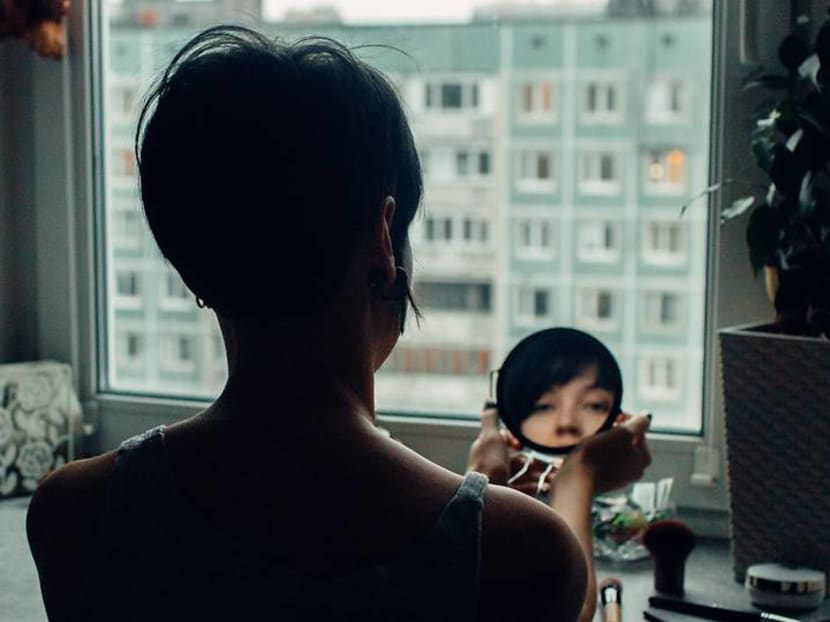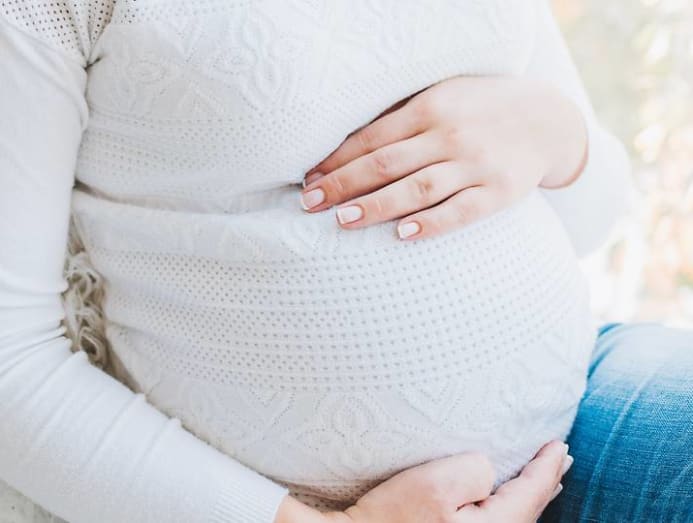Commentary: Falling birth rates are a problem but don’t blame women alone
Policymakers sometimes accuse women of frittering away their fertility, but the problem is more complex, says the Financial Times’ Camilla Cavendish.

(Photo: Unsplash/Alina Miroshnichenko)
LONDON: OMG, I forgot to have children!” says the ubiquitous cartoon, in which a pretty blonde with lots of lipstick smites her forehead.
Now the new head of an all-women Cambridge college is offering seminars on fertility to students she fears are taught to focus more on their looks and careers than their biology.
Dorothy Byrne, who was a successful TV executive before becoming head of Murray-Edwards college, is wonderfully honest about having put her career first and only woken up to her biological clock just in time to have her daughter at the age of 45.
Every few years, some part of the establishment rises up to accuse women of ignorantly frittering away their fertility. But having interviewed women on three different continents about why they’re not having children, I think the problem is rather more complex.
PLUMMETING BIRTH RATES
Some women do, sadly, leave it too late. But others have actively decided not to start a family, are worried about cost or have not met the right partner.
Most young women I meet are very keen indeed to discuss whether to have a baby, and when.
Yet the death of birth is one of the biggest stories of our age. In 1950, the average woman on the planet had five children; today she has just below 2.5.
The birth rate in England and Wales has just hit a record low, with no sign of the rumoured baby boom from COVID-19 lockdowns.

Catholic Italy now has among the lowest birth rates in Europe. Speaking to women there, I have found a combination of fear about the cost of starting a family and fury – largely with men who are neither bringing home the bacon nor stepping up to fatherhood.
These women don’t need lectures about their fertility. When the Italian health minister tried just that, in 2016, she was met with outraged counter demonstrations.
On National Fertility Day, women marched through the streets carrying placards reading “siamo in attesa” – a play on “we’re expecting”: Affordable childcare and job protection.
Other governments have faced similar problems when trying to cajole women into having kids.
A hilarious Danish campaign urged women to “Do It For Denmark”, and to take romantic breaks because Danes have 46 per cent more sex on holiday (I have no idea where they get such precise statistics).
But women have been largely unmoved – perhaps because they don’t like being treated like prize cattle.
MORE CHOOSING NOT TO HAVE CHILDREN
It is important to recognise that, contrary to the evolutionary impulse, quite a few women – and couples – are choosing not to have children.
For many, being child-free is a liberation from societal expectations. Others feel, as one Singaporean couple put it to me, that kids “don’t pass the cost-benefit test”.
Some wrestle with the question of whether it is right to bring children into what they feel is a very uncertain world. Four in ten young people surveyed in the UK, India, Brazil and seven other countries said they were hesitant to have children because of the climate crisis.
Far from being too casual about the topic, most young people I meet put a great deal of thought into the pros and cons of parenthood. As a soppy mother of three, I feel they may be overthinking it.
But a new hurdle is a dramatic shift in time of life stages. The human race is living longer, and taking longer to settle down, than ever before. The average age at which children leave home in the UK is now 25, an age which should arguably mark the new end of adolescence.
But if people are settling down later and carrying student debt into their 30s, the window to start a family is narrowing: Because we are stuck with female fertility fading from around 35.
A DIFFERENT CALCULATION FOR MEN
The calculation is different for men. It’s perfectly rational for a man to put off having children while he climbs the career ladder, especially given that many people seem to hit peak earning age in their forties.
It’s not ideal to be bug-eyed from lack of sleep just when the big promotions loom, especially if you’re up against colleagues who are not having to change nappies at night.
She felt a sense of "despair" each time she had to breastfeed. But there’s one thing that made all the difference in this difficult journey, this new mother says on Heart of the Matter:
I meet many women in their thirties who are panicked about missing the boat, but dare not spook any date by mentioning kids over dinner. One friend was strung along by an eligible chap until her late thirties, who then fled when she gave him an ultimatum.
Like many others, she is now grimly googling sperm banks.
Although we can’t yet alter the biological clock, there is one way to change the equation. Some women in the UK are now freezing their eggs, either because they have not found Mr Right or because they want to have the best chance of conceiving later in life on their own terms, with or without a partner.
Baroness Deech, former chair of the Human Fertilisation and Embryology Authority, argued in 2019 that women should be able to store frozen eggs for much longer than the currently permitted 10 years – which technological advances have now made possible.
While this raises its own ethical questions about later parenthood, it could enable women to store their eggs in their twenties, when they are at their most fertile.
It might make a difference to tell men that their fertility declines too. Research suggests that babies born to fathers over 45 have greater risks of being born prematurely, and of suffering from congenital diseases later in life.
That’s something that most of us really didn’t know. What a shame the Cambridge seminars are only for women.







